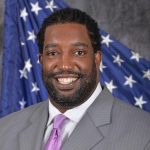Profiles in Recovery

Andre L. Johnson
Recovery often sparks radical change, as Johnson can attest. The former high school dropout and convicted felon wore his first cap and gown at graduation from a drug rehab facility. Today, Johnson is pursuing his doctoral degree in psychology, and is a national leader in the recovery movement. He was honored by the Obama administration as a “Champion of Change” for helping thousands of people rebuild their lives.
As founder of the nonprofit “Detroit Recovery Project,” Johnson has secured more than $15 million in grants over the past 20 years to provide services and support for people battling addiction.
He coordinated the first Narcotics Anonymous convention in East Africa, and was appointed by the U.S. Secretary of Health & Human Services to serve on the national advisory council on substance abuse.
PreviousNextDay Job:
Founder, President & CEO, The Detroit Recovery Project
When I was actively addicted:
I would sell the shoes off my feet to buy drugs. I broke the law and became a criminal. I sold cocaine to an undercover officer. I used people for money, I panhandled for money to support my addiction.
My rock bottom moment:
Destroying my trust with my mother, especially when she took my keys to the home and told me I was no longer allowed in my home.
What I learned about myself:
I learned that I suffer from an illness. I must treat it and respect it as such. The moment I forget, I can run the risk of facing death, jail, or being institutionalized.
What worked for me:
I was 18 years old when I entered rehab. I spent my first two weeks in a short-term alcohol residential rehab program. From there I went into a 120-day residential treatment program, and then stayed in a transitional house for 2 1/2 years. During treatment, I participated in individual therapy daily and group therapy. I began to process my issues, and came to the realization that I was not responsible for my addiction, but I was responsible for my recovery.
I was exposed to the 12-step programs of Alcoholics and Narcotics Anonymous. I met people who were just like me and that’s when I began to embrace recovery. I prayed EVERY DAY for a better life, I prayed for the desire to use drugs to be removed from me. I found new friends in recovery.
My favorite recovery quote:
Keep coming back! Recovery works if you work it! Work on your insides versus your outside.
A typical week for me:
I pray everyday. I thank God for my freedom, my health, and my recovery. I take self-care very seriously; prayer and meditation help me to sustain peace and serenity. I attend a restorative yoga class once a week, I also attend a Tai Chi class once a week. I go to the gym at least two or three times and attend at least two to three 12-step meetings a week.
Best advice for newbies:
Embrace recovery and know that it will get better. Build a solid recovery foundation. If drugs were the answer, find out what the question is? Recovery is a life-long journey, it is not a destination. Don’t be in a rush! Commit to a 12-step program, and seek out counseling.
On the stigma of addiction:
Early in recovery, I was embarrassed at being a person in recovery. I no longer feel like that. I believe the stigma of addiction is not as bad as it once was — thanks to the recent announcement by the U.S. Surgeon General, who stated that addiction is a chronic illness and not a moral issue, but America’s number one public health problem.
What saves me from myself:
Is the ability to do a daily inventory, of my actions and attitude. The ability to admit my wrongs and faults, to recognize if I am doing something that is unhealthy for my body, mind, and or spirit. My ability to be responsible and be a man of my word. Doing the right thing because its the right thing.
I get inspired by:
The miracles of recovery happening in peoples’ lives everyday.
SHED THE STIGMA:
If you’re a person in long-term recovery who wants to share your
insights, please contact us at [email protected].